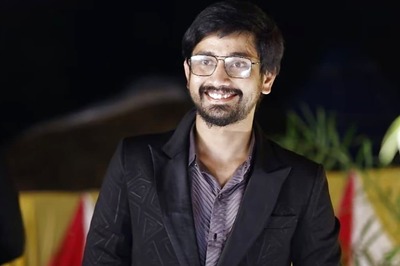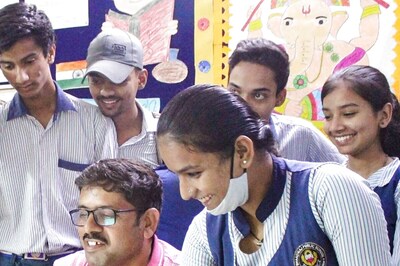
views
Prime Minister Narendra Modi’s penchant for messaging is well known, and, as his critics would say, he won’t spare any occasion. NDA candidate Harivansh’s election as the new Rajya Sabha deputy chairman is not just about another feat of the NDA in the absence of not so united opposition.
So what’s the big message now that Modi wanted and Shah sought to give out? Even though this round of election involved only the members of the Rajya Sabha where the NDA does not command a majority there are two messages — one stated loudly and another not so loudly.
As the BJP enters 2019, an election year, its ties with recalcitrant and not-so recalcitrant allies still remain intact. Secondly, it can win the support of undecided non-NDA parties and serve a blow to the Congress’ bid to build up a united front.
It’s another feather in his cap: for the first time in 41 years, the House will have a non-Congress deputy chairman.
Modi got other NDA members to relish this fact and treat it as a political triumph: yet another position that was once the privilege of the Congress is gone.
The election of Harivansh (he prefers to use his first name only) was not just about Modi’s or Amit Shah’s strategy.
Knowing that chances of a BJP candidate winning a poll in the Rajya Sabha was nil if fought unilaterally, Modi took the first step of calling up Odisha Chief Minister Naveen Patnaik to know whether he’d be willing to back a NDA nominee. Once Patnaik, who heads the Biju Janata Dal (BJD), indicated that his party can back any non-BJP candidate but not belonging to the Congress, the PM spoke to Bihar CM Nitish Kumar to nominate someone from the JD (U), which has not been very happy with the BJP off late.
When Nitish chose Harivansh (he prefers to use his first name only), Modi jumped at the idea, knowing his background as a close associate of former PM Chandrashekhar, belonging to anti-Emergency hero Jaya Prakash Narayan’s village, and his career as an editor who turned around a Ranchi newspaper to a brand that is seen as a great grassroots success —Prabhat Khabar.
Therefore, it was not a surprise, PM Modi used the customary felicitation extended to the newly elected deputy chairman to message about Harivansh as a “man whose journalism was people-oriented and not politics-oriented” and who served as media adviser to Chandrashekhar, a former socialist icon in his own rights who fought Indira Gandhi’s Emergency (1975-77).
Harivansh’s own friendship cutting across the political divide in the Hindi heartland on his four-decade-long journalism was handy for the ruling NDA too.
By choosing a deputy for Rajya Sabha chairman Venakaiah Naidu, whose stewardship of the Upper House hasn’t exactly smoothened ties between the treasury and the opposition benches, Modi could be expecting a soft-spoken Harivansh to use his personal skills to let the government’s legislative agenda go unhindered and allow the opposition to have its say on various matters.
With Harivansh in the chair, Venkaiah will have more time to avoid situations where acrimony gets better of everyone in the House.
(Shekhar Iyer is a former senior associate editor of Hindustan Times and a political editor of Deccan Herald. Views expressed are personal)



















Comments
0 comment